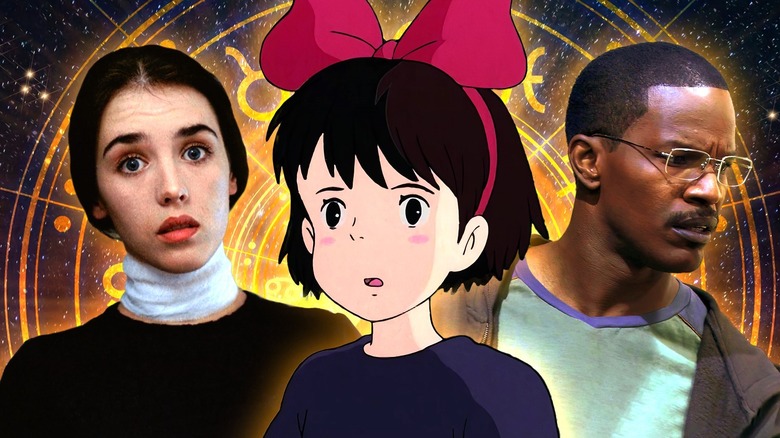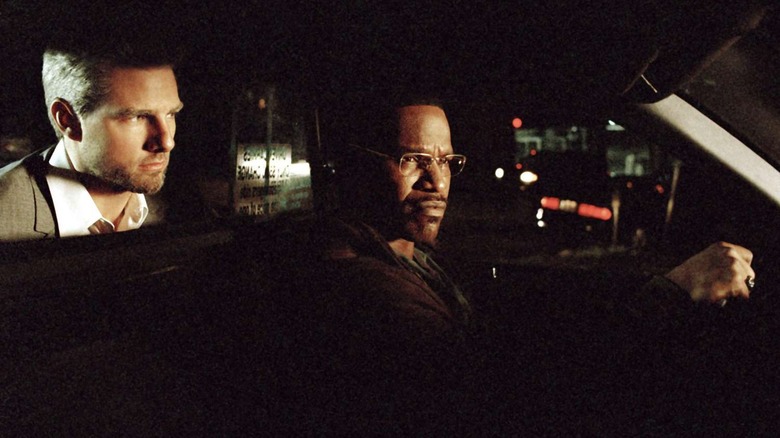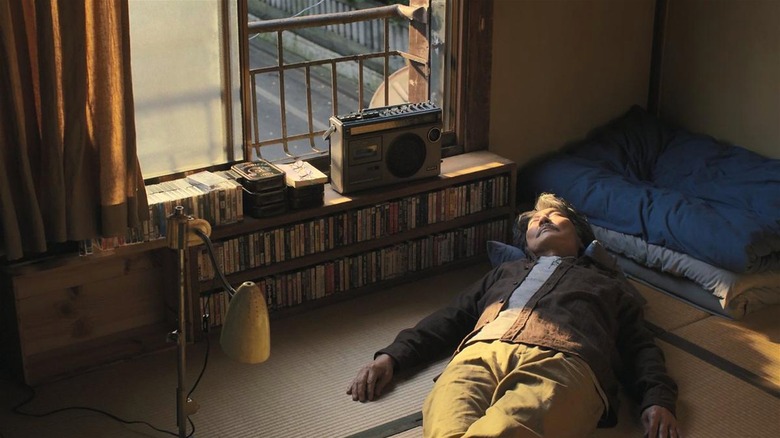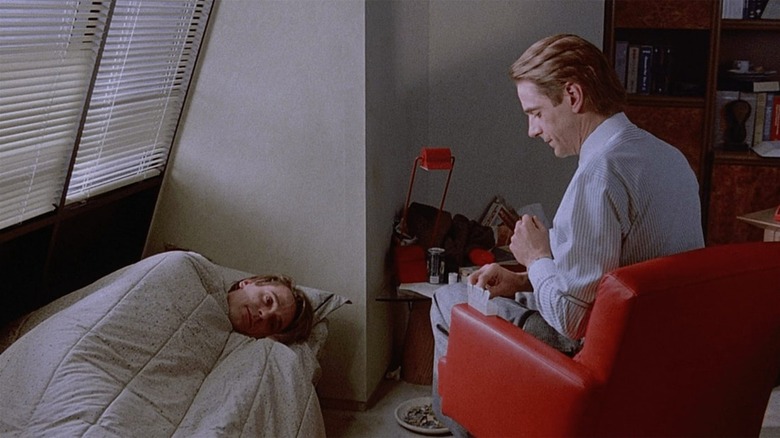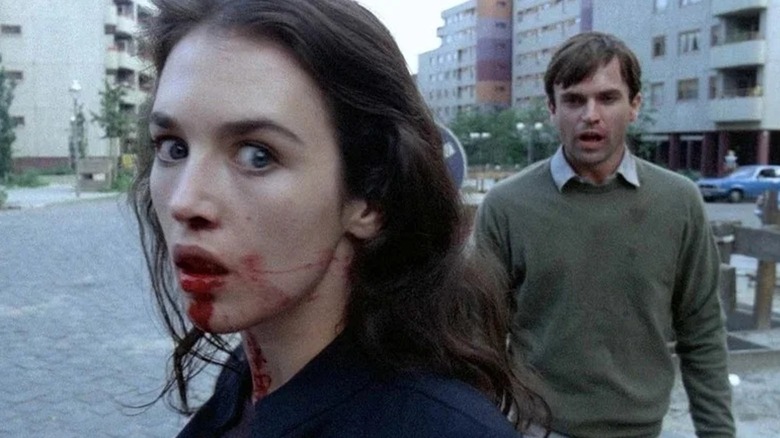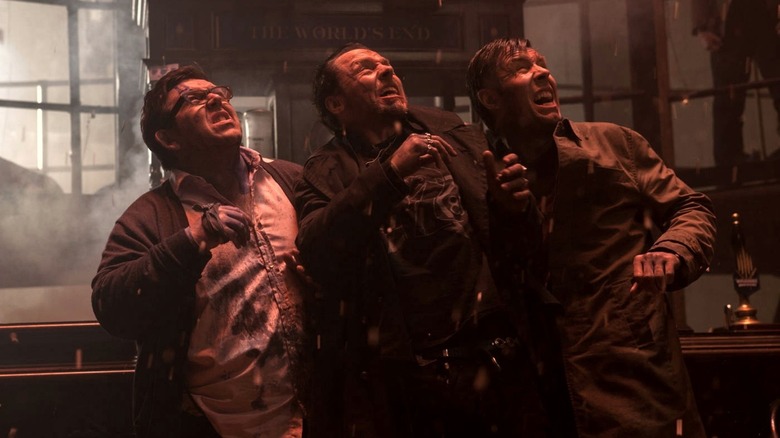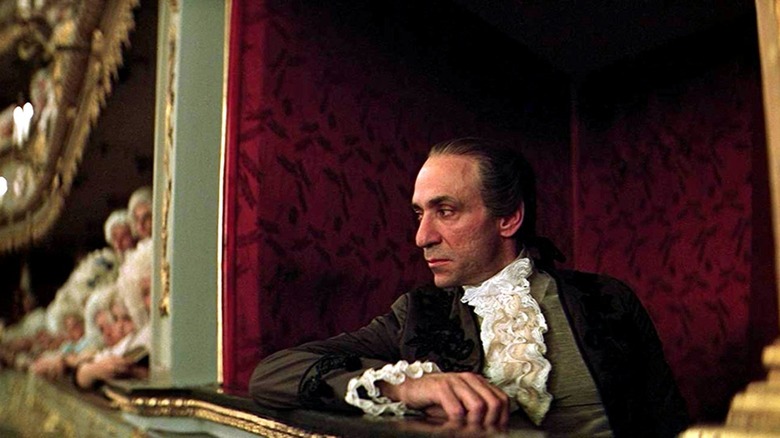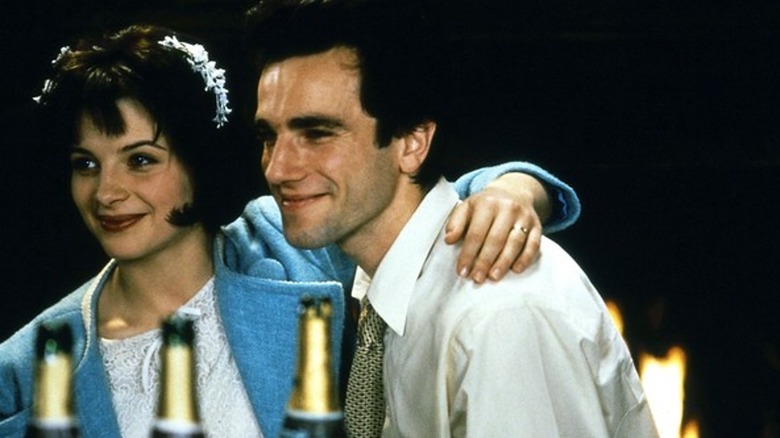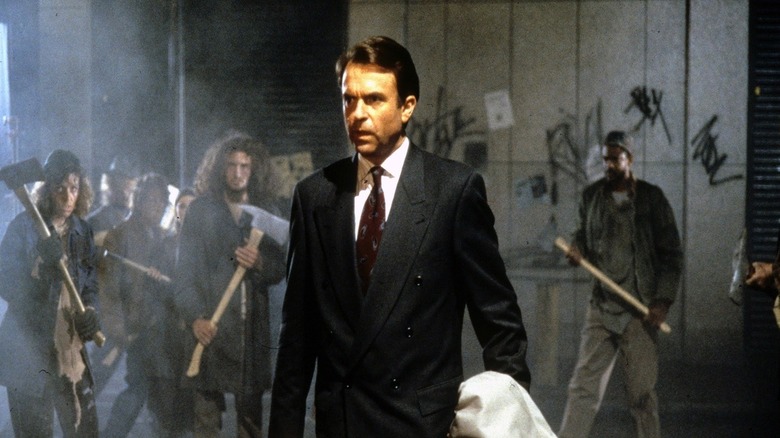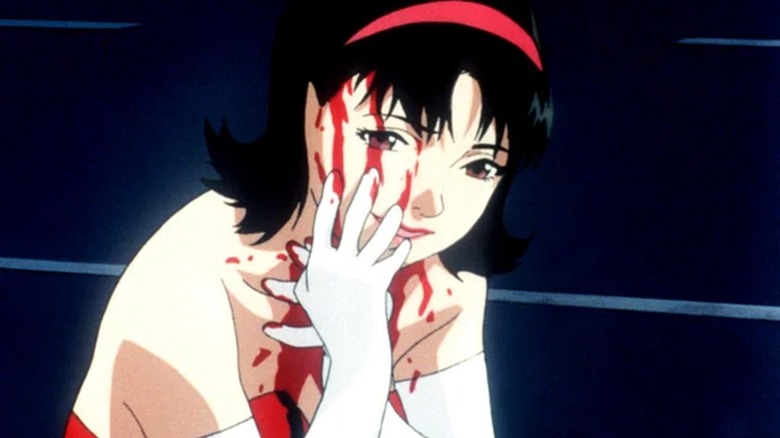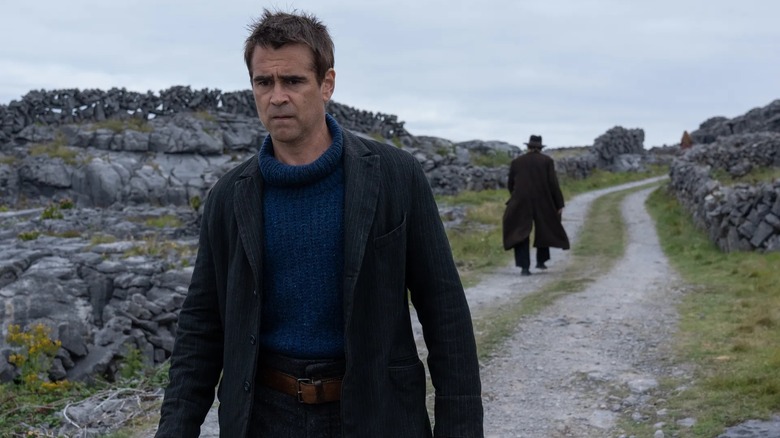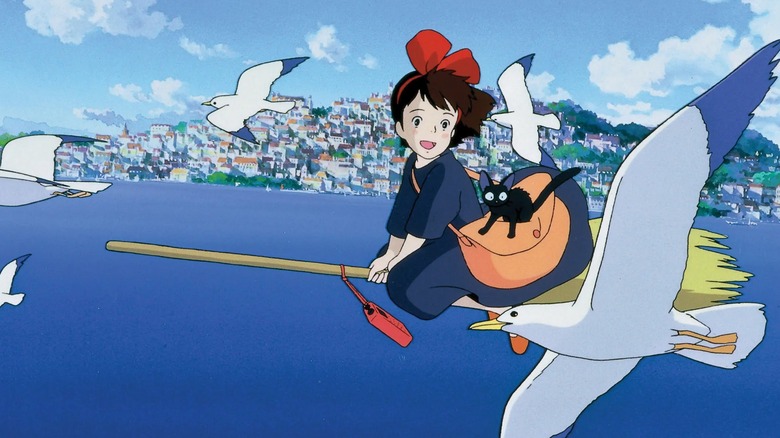The 12 Best Movies To Watch Based On Your Zodiac Sign
One of the best things you can do is watch a movie based on pure vibes. Sure, you could aimlessly scroll through your favorite streaming platform, but where's the fun in that? It's never a bad idea to switch things up a bit and take a themed approach to watching movies and using one's zodiac sign as a yardstick for this occasion. Things can get a bit complicated, sure, as we have to consider the sun, moon, and rising signs, among other placements. Moreover, descriptors attributed to every zodiac sign can never adopt a one-size-fits-all approach, as every individual is bound to appreciate varying shades of filmmaking, even within the same genre.
That being said, here is a list of the 12 best films to watch based on your zodiac sign, which I have chosen keeping key behavioral tendencies of every individual sign in mind. My criteria for assigning a film to a sign hinges on the overarching obstacles or thematic life lessons that each sign needs to learn and overcome, so feel free to check your sun, moon, and rising for a triple recommendation suited to your tastes. While some entries will feature recent releases, others will touch upon either popular or lesser-known films that are emblematic of the assigned zodiac sign's strengths. Let's dive in.
Aries: Collateral (2004)
Aries are ruled by fire, like to lead by example, and use their fearlessness as a shield while navigating chaotic circumstances. If they reach deep within, they can find the courage to lead and make it out of the worst situations thanks to an intoxicating combination of strength and sheer grit. Leading such a brazen existence comes with its challenges, making it imperative for Aries to slow down when the situation demands it, and play the long game. No film better encapsulates this feeling of reckless beauty and terror — which comes in the form of a life-altering cab ride from hell — like Michael Mann's "Collateral."
When forced to deal with the whims of an unpredictable passenger (Tom Cruise), a Los Angeles cabbie named Max (Jamie Foxx) must find a way to disentangle himself from his nefarious web before it is too late. "Collateral" slowly unravels the various shades of night-time L.A., where the precious hours before dawn end up being the darkest and most nightmarish. Max undergoes a trial that ends with the ultimate assertion of identity against the feral, dangerous Vincent, who is so locked in that his actions grant "Collateral" a gritty, vicious tint. There is catharsis in taking a slow, self-controlled approach from time to time, as an ill-timed burst of passion can seal one's fate forever — especially if you're inside a Michael Mann thriller.
Taurus: Perfect Days (2023)
Taurus is often associated with the sensual aspects of life, but what truly defines them is a deep appreciation for artistic pursuits. Determination and stubbornness often go hand in hand, making them lean towards pleasures that are more worldly in nature, where beauty and indulgence reign supreme. If this instinct is imbalanced, Taurus tends to fixate a bit too much on material possessions, valuing style over substance, as opposed to the true essence of these experiences. For anyone looking to slow down and luxuriate in deliberate stretches of silence, Wim Wenders' "Perfect Days" is a bittersweet antidote to the mindless need to consume just for the sake of it.
It would be an oversimplification to state that Hirayama (Kōji Yakusho), the figure at the center of Wenders' tale, consciously indulges in solitude and pursues his love for art out of pure volition. The sense of satisfaction that Hirayama creates out of cleaning toilets for a living, reading borrowed books, or admiring nature is fragile, as it breaks as soon as the world intrudes upon his meticulous schedule. Loss and grief simmer beneath the surface, but Hirayama's pursuit of art and beauty is not a facade, as stillness and turmoil can coexist inside a person. What matters is the desire to appreciate the seemingly mundane, and the need to make a fleeting connection when all hope seems lost.
Gemini: Dead Ringers (1988)
Twin symbolism is what Gemini is all about, as it represents the fluidity of their fast-paced thoughts and how easily their moods can evolve. There is a thirst to soak up every worldly experience and flow like water, but such lofty ideals often shatter when not backed up with an actionable plan. Nevertheless, Gemini relishes intellectualism of any kind, and the innate split in their psyche, if balanced, can lead to wonderful feats. Conversely, an imbalanced view of the world, coupled with misplaced hubris, can lead Gemini down dark paths. Is there a film that perfectly captures these sentiments? Why, yes: Look no further than David Cronenberg's "Dead Ringers," which takes a psychologically complex approach to dissecting the lives of identical twins who could not be more different.
Twin gynecologists Beverly and Elliot Mantle (both played by Jeremy Irons) represent the symbiosis of sharing an identical appearance, but their antithetical approach to desire and sexuality leads to a fascinating split. Elliot, the more confident twin, drowns in affairs and defers his trysts to Beverly when he tires of them, and this exchange is disrupted when the latter falls in love with the electrifying Claire (Geneviève Bujold). Cronenberg employs body horror to further these intertwined arcs, where the power dynamics shift to usher the tragic downfall of the Mantle twins. By the time the credits roll, the spell persists, like a hauntingly beautiful poem that lingers.
Cancer: Possession (1981)
Cancer signs are associated with volatile emotions that run deep, along with a ferocity that stems from protectiveness. Most astrological descriptors for Cancer are emotion-oriented, where an excess is chalked up to recklessness, overreactions, or unpredictable behavior. However, Cancer can also be highly intuitive and nurturing, especially when it comes to people who match their energy and respect the firm boundaries drawn. A lack of boundaries can easily lead to a loss of the self (which can be true for anyone, not just Cancer signs), and the pain of a bond gone awry can easily overwhelm them. Andrzej Żuławski's "Possession" takes this energy to the extreme, exploring the psychosexual fallout of a relationship on its last legs.
In Żuławski's film, both Mark (Sam Neill) and Anna (Isabelle Adjani) feel intensely for one another, but their love has run its course and mutated into a mass of vestigial desires, guilt, and shame. They need each other to evolve into the next toxic cycle of make-believe, yet cannot help but be repulsed by the other's existence. This is also a tale about state surveillance, loss of identity, and the actualization of anxieties, where the covert political axis of the film urges the personal to spin in maddening circles. The only way to end such a visceral experience is to predict the inevitable extinction of a rotten, corrupted world.
Leo: The World's End (2013)
An open book for the most part, Leo favors charm and a love for theatricality, channeling a "life of the party" energy. As a fire sign, they carry a sense of warmth wherever they go, but this happy-go-lucky aura might descend into caustic optimism when left unchecked. As Leo thrives in the company of loved ones, an imbalanced outlook might instill a fear of solitude or an unhealthy dependence on others. On the flip side, balanced Leo energy encourages harmony, as it often acts as the glue in social groups and can help mend bonds. To embrace this celebratory adventure in spirit, I recommend Edgar Wright's "The World's End," which evokes a contrast between the jaded weariness of adulthood and the well-meaning immaturity of someone afraid to accept it.
Wright's apocalypse comedy situates Gary (Simon Pegg) as a deadbeat who will stop at nothing to recapture the glory of a pub crawl with his friends, as they had done in their youth decades before. Sadly, there's a slight hiccup in their plan: The world is coming to an end, forcing the group to continue their crawl to evade suspicion as androids begin replacing humans. "The World's End" is equal parts hilarious and heartfelt, and Wright, who was inspired by his own nostalgia to make the movie, isn't afraid to embrace the silly absurdity of such a surreal premise, which is grounded by authentic camaraderie among the central group. Even as the humans start dwindling, the party never stops, and accepting vulnerability becomes the key to saving the world.
Virgo: Amadeus (1984)
Extremely hardworking, with a love for structured routines, Virgo sets impossibly high self-standards and aims to achieve absolute perfection. However, when taken to extremes, this diligence and drive can morph into zealous obsession, and their fundamentally helpful nature can become judgmental. Those willing to hone their talents can easily attain success, but this streak might get tainted once they keep comparing their talents with someone more accomplished. There is no dearth of movies about artistic perfection, but unfiltered Virgo energy is best embodied by Miloš Forman's "Amadeus," which centers on a rivalry driven by jealous admiration and obsession.
Forman takes an audacious approach to weaving a fictional tale (inspired by Alexander Pushkin's stage play, "Amadeus") about composers Mozart (Tom Hulce) and Salieri (F. Murray Abraham) pursuing their respective obsessions. While Mozart's intrinsic genius feels unpalatable for society at the time, Salieri wishes to crush his rival with a divine deal of his own, as he is frustrated by his own mediocrity. Beneath the layers of envious anger lies grudging admiration, but Salieri is trapped too deep within his web of ambitions and feels horribly inadequate in the face of Mozart's infantile insults. What follows is a tale about celebrated genius and how those with inferior talents respond to it, but Salieri nonetheless emerges as a flawed, yet sympathetic figure. The results are tragic, tender, and bittersweet.
Libra: The Unbearable Lightness of Being (1988)
Libra represents balance as represented by the scales of justice, but this core tenet can also be a double-edged sword. As Libra is capable of scrutinizing everything with impartiality, they tend to sit on the fence quite a bit, as if gripped by a Hamletian dilemma. When balanced, Libra prioritizes honesty and justice, and their charismatic personalities encourage equity and social harmony. Self-effacing tendencies can be born when they're faced with indecision, and attempts to escape the act of making a choice can often come at a great price. If you're looking to explore this dilemma further, I have just the movie for you: Philip Kaufman's profound, beguiling "The Unbearable Lightness of Being."
Tomas (Daniel Day-Lewis), a surgeon in communist Czechoslovakia, yearns to rise above the mundane and pursue a physical relationship without strings. Although he and Sabina (Lena Olin) are on the same page when it comes to their affair, Tomas later locks eyes with another woman, Tereza (Juliette Binoche), and immediately falls in love without warning. What follows is truly unbearable, as Tomas mires in indecision, unable to reconcile his sensualist appetites with notions of security and permanence. The ugly paradox of the situation is accentuated by ongoing political upheaval, and Kaufman's film ultimately succeeds in shaking the foundations of our souls.
Scorpio: In the Mouth of Madness (1994)
A sign associated with transformation, Scorpio thrives in metaphorical darkness and is not afraid to fight their demons to reclaim the light. Passionate, intense, and fiercely loyal, Scorpio loves digging beneath the surface, but can lash out at others when they're not met with the same energy. This one-tracked focus can close them off to greater truths, but once exposed to them, Scorpio does not hesitate to embrace the surreal. In celebration of Scorpio's appreciation for the darker corners of reality, I recommend John Carpenter's "In the Mouth of Madness," which follows the transformation of a pragmatic insurance investigator in the face of Lovecraftian terrors.
In Carpenter's film, the disappearance of pulp horror novelist Sutter Cane generates massive social upheaval, prompting John Trent (Sam Neill) to dive deeper into Cane's fictional mythos and his final, yet-to-be-printed manuscript. Although Trent is not swayed easily by the uncanny, he investigates with due diligence until he ends up in the strange, picturesque town of Hobb's End, which is where the horrors begin. Trent's turn from a rational, no-nonsense businessman to a social outcast traumatized by unspeakable cosmic terrors is riveting to watch, right up until the surreal, sanity-defying ending. Here, reality is not absolute, but an ever-shifting entity that can be edited at will, where one's existence can be written out with a flick of a wrist. This is true terror.
Sagittarius: Y tu mamá también (2001)
Constantly looking to covet new experiences, Sagittarius hungers for adventures — both internal and external — to express their love for freedom and individuality. This energy is not necessarily flippant, as they are capable of delving into complex philosophical conundrums and discerning falsehoods with blunt evaluation. However, this energy can cause carelessness when left unchecked, and lead to reckless decisions where the means do not justify the end. Any road trip movie that embraces limitless freedom is perfect for Sagittarius, but Alfonso Cuarón's "Y tu mamá también" is the quintessential experience about growing pains and the uninhibited exploration of pleasure (and why that can be a slippery slope).
Two teenage best friends, Julio (Gael García Bernal) and Tenoch (Diego Luna), embark on an adventure that ends up defining their lives after encountering Luisa (Maribel Verdú), whom they try and win over. After Luisa experiences heartbreak, she decides to go on a trip with the boys, and things take a wild, sensuous turn, interspersed with moments of vulnerability. Emmanuel Lubezki's naturalistic cinematography grants an authentic tint to the bonds developing onscreen, and Cuarón dissects the intersection of social class and desire in a way rarely done before. In doing so, the film rewires traditional perceptions about masculinity, sexual openness, and non-platonic friendships, while offering an experience that is truly transcendent.
Capricorn: Perfect Blue (2002)
Goal-oriented, and invariably eager to take on leadership roles, Capricorn harbors the determination to climb up the proverbial ladder and not stop until they are satisfied. While they're aware that taking the time to relax is crucial, their drive to emerge at the top can make them pushy and extremely hard on themselves. Few films explore the notions of identity, societal perception, and the reality of "being at the top" like Satoshi Kon's "Perfect Blue," which dissects the psyche of Mima (Junko Iwao), a J-pop idol who pushes herself to her limits to blossom into an actress.
"Perfect Blue" unfurls like a fever dream due to the way Kon hones in on public obsession and how it defines a famous individual whose personal autonomy is completely overridden by perverse interpretations of her persona. Mima undergoes unimaginable trauma when subjected to humiliation, stalking, and objectification, and these events blur the line between the real and the fantastical, just like the shared delusion of parasocial internet culture. This is a deeply disturbing and nuanced look into the opposite ends of fame and desire, paced like a psychological thriller that is impossible to forget. It all underlines the pitfalls of thoughtless, uncritical consumerism in hyper-capitalist societies.
Aquarius: The Banshees of Inisherin (2022)
Wielding a duality that balances solitude with a sense of community, Aquarius values ideas over sentiments. They're rebellious by nature and prefer well-structured planning over emotion-driven spontaneity, willing to rally for change for things go awry. However, this energy can often lead to ruthless detachment and isolation, especially when they feel that people around them are incapable of appreciating their vision. To experience both sides of such a singular stance about close relationships, look no further than Martin McDonagh's "The Banshees of Inisherin," which is a tragicomic foray into a friendship that's ruthlessly severed without explanation.
Dairy farmer Pádraic (Colin Farrell) and his best friend Colm (Brendan Gleeson) have been going to the local pub at 2pm since forever, but this comfortable routine is shattered unprompted one day. "Why wouldn't he answer the door to me?" Pádraic asks his sister Siobhán (Kerry Condon), who teasingly counters that Colm might have stopped liking him enough to continue being friends. This horrifying truth, which makes itself clearer with each passing moment, breaks Pádraic, but Colm is agonized by his friend's insistence to linger. The terror of being forgotten mingles with the pain of being pushed away for life, and these sentiments combine to create a moving tale about grief, loss, and yearning.
Pisces: Kiki's Delivery Service (1989)
Naturally compassionate and empathetic, Pisces often put their needs on the back burner and prefer escaping into fantastical realms to evade the cold harshness of reality. Although this is not a negative trait by any means, an overindulgence in daydreaming might lead to rude awakenings, and not prioritizing the self can lead to people-pleasing tendencies. What better way to escape into a fantastical setting that underlines the need to remain grounded than watching Hayao Miyazaki's "Kiki's Delivery Service," which tells the ultimate story of self-love and acceptance when the world feels too cruel to accommodate our ardent dreams.
Kiki, a young witch, tastes the beauty of freedom after embarking on a solo journey with her talking cat, Jiji, and is determined to find work amid cities that feel huge and unfriendly. At first, Kiki's solitude is emancipating, as it marks the beginning of a new adventure, but as the film inches towards the realities of adulthood, Kiki's solitude shifts into loneliness, making her feel small and alienated. She knows that she must go it alone or not at all, and this growing pain is understandably difficult to stomach since it signals the loss of innocence and the cocoon of childhood. However, Kiki perseveres and finds the value of community, having comprehended the necessity of growth and embraced who she truly is.
